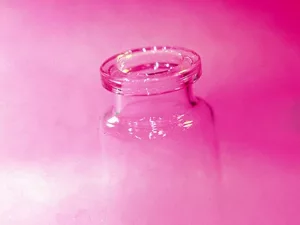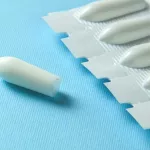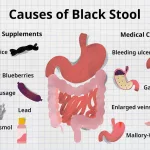
Wait, Should I Worry?
At first, I thought it was nothing. Honestly, I didn’t give my discharge much thought; it was just this thing that happened and you sort of dealt with it. Then, out of nowhere, I started catching myself hesitating before praying—wondering if I’d somehow missed a step, or maybe messed up my wudu. Did I need to redo it? Was I supposed to change, or just ignore it? Growing up with sisters, group chats, and Google at my fingertips, I realized how common these questions are. No one wants to ask out loud, but almost every Muslim woman I know has quietly wondered, “Is my discharge pure? Does it really break my wudu every time?”
So… here’s a real-life, honest conversation—no shame, no textbook stiffness, just one sister to another (or for my brothers who want to better support the women in their lives). We’re going deep into the Types of female discharge Islam recognizes, why it matters, and how you can make peace with both your body and your salah.
Why Does Discharge Even Happen?
Have you ever noticed how your body just takes care of itself… even in the most awkward ways? Discharge is honestly just your vagina’s way of staying healthy, a built-in self-cleaner that keeps things balanced according to multiple scholars. But in the world of Islamic rituals and purity, its significance is more than just medical.
Not all discharges are treated the same in our faith. Understanding what’s coming out—and why—helps you approach both your rituals and your health with more confidence. Let’s walk through it together.
Mystery Fluid #1: “Maniy” (Discharge After Peak Desire)
Am I Gonna Need a Ghusl For This?
Let’s talk about maniy. This is basically the female version of semen. It shows up when you reach the peak of sexual excitement (orgasm or that unmistakable full-body letting-go). It’s usually a thin, slightly yellowish—sometimes white—fluid. Usually, there’s a sense of total release; your muscles even relax right after according to Islamic scholars.
If you ever find yourself waking up from a vivid dream with wetness, or after sex or even intense arousal, and you notice this kind of discharge, here’s the drill: you need to do a full-body wash (ghusl). Don’t stress—this is pure by scholarly consensus, but ghusl is the reset button before you pray again research on types of discharges clarifies this further.
A Friend’s Midnight Quandary
My friend Sarah once panicked after an intense dream—she texted me at 2 am, convinced she’d done something “wrong.” Once she heard the hadith about Umm Sulaim (who literally asked the Prophet SAW about this exact scenario), her relief was real. It’s not weird. You’re not alone. It’s just your body being, well, your body.
| Discharge Type | Main Cause | Purity Status | Ritual Needed |
|---|---|---|---|
| Maniy | Orgasm/peak desire, wet dream | Pure | Ghusl (full wash) |
Mystery Fluid #2: “Madhy” (That Unexpected Arousal Drop)
Is This the Sneaky Stuff?
“Okay, what about the times I’m just thinking about intimacy, or in the heat of the moment, but there’s no big climax?” That’s madhy. It’s often described as thin, sticky, slightly slippery, and usually white or clear. Sometimes, it might show up without you even really noticing until later. Oh, the joys of biology.
The important bit? Madhy is impure. No shame—it just means you need to wash any part of your body (or undies) it touched and renew your wudu. But—not a full ghusl. Less drama, more “quick bathroom break.” Scholars generally agree on this according to fiqh explanations.
An Embarrassing Honeymoon Story
Another friend—let’s call her Aisha—called me out of the blue when she was a new bride, practically whispering. She’d panicked during her honeymoon, thinking every little bit of moisture meant a new shower. Truth is, it was just madhy. A little wudu, a wash, some giggles, and prayer went on as usual. We laughed, but deep down, I totally understood that uncertainty.
| Discharge Type | Main Cause | Purity Status | Ritual Needed |
|---|---|---|---|
| Madhy | Arousal/thoughts, not climax | Impure | Wudu + wash |
For more on handling doubts about wudu and discharge, check out Doubts about discharge Islam. It has real Q&A and stories you’ll totally relate to.
Mystery Fluid #3: “Wady” (That Post-Pee Drop)
Just After the Bathroom?
Wady shows up right after you use the toilet—a thick, white-ish discharge that isn’t really the stuff of arousal, just… the leftovers. If your routine feels like you almost always spot this after peeing, you’re not making it up! Wady is impure too, so like madhy, it needs to be washed off and a fresh wudu begins before you pray. No need to overthink, just roll with it.
Life Hacks From Sisters
One friend started carrying those mini wet wipes and extra liners in her bag—life changer. Some days, she just glances at her pad, gives a little sigh, and gets on with her day. No stress, just a little routine.
| Discharge Type | Main Cause | Purity Status | Ritual Needed |
|---|---|---|---|
| Wady | After urination | Impure | Wudu + wash |
The Everyday Stuff: Regular Moisture and Vaginal Wetness
“Is My White Discharge Impure in Islam?” (Let’s Clear It Up)
Here’s the curveball: what about the “normal” stuff? The clear, whitish, a-little-sticky but not sticky-icky, sometimes cloudier, sometimes lighter discharge? This is almost every woman’s “norm,” and it can shift across your cycle, after exercise, stress, diet, or, honestly, for no particular reason at all.
Here’s where a lot of women get tripped up. Good news—if it’s not tied to arousal or urination and it’s not bloody, most scholars say it’s pure. But, it might still break your wudu (ablution). Just do a quick wudu before prayer, no need to wash clothes or stress out as per islamqa. If this kind of pure, white discharge is your concern, you can de-stress a lot by reading this: Is white discharge impure in Islam. It’s helped more sisters than I can count.
Why the Fuss Over “Pure” Versus “Impure”?
Islam values cleanliness—literally, it’s half the faith. All these rules aren’t meant to make you obsess over your underwear, but to bring mindfulness to your self-care, health, and spirituality. Knowing that most day-to-day discharge is pure (with or without wudu renewal) can help you breathe easier.
And if you constantly have discharge and can never seem to keep fresh for prayer? There’s mercy built right in for you—you might qualify as a “ma’dhoor” (excused). Just do one wudu for each prayer, and don’t stress between times. Seriously, even the scholars get how challenging it can be (see this nuanced fatwa on vaginal discharge).
So… How Do I Tell the Types of Female Discharge Islam Recognizes?
Let’s Make This Easy: A Table You Can Bookmark
| Type of Discharge | Key Feature | Pure/Impure? | What To Do |
|---|---|---|---|
| Maniy | Orgasm/sexual peak, yellowish | Pure | Take ghusl. No need to wash clothes. |
| Madhy | Arousal without climax, thin/clear | Impure | Wash area (body and garments), do wudu. |
| Wady | After urination, thick/white | Impure | Wash, do wudu. |
| Normal Moisture | Daily wetness, clear/white, not tied to urination/arousal | PURE (mainstream view) | Usually just renew wudu; no need for washing clothes unless mixed with blood or other types. |
Truth is… Sometimes you’ll be uncertain. Maybe you don’t even know where your discharge is coming from (vagina? cervix? uterus? Who’s got a microscope handy?). If that’s the case, lean on what feels most likely, do your best, and remember—Allah isn’t making this hard for you. If doubts persist, visit Doubts about discharge Islam to read about common questions and how to pick the safest, least-stress path.
Your Health, Your Wellness, and… Your Worship
No Guilt, No Shame, Only Care
What you’re going through is shared by basically every Muslim woman out there. Discharge isn’t gross or dirty—it’s a natural sign you’re healthy. Still, if you see any huge changes—strong odors, unusual colors, itching, or bleeding outside your cycle—it’s best to chat to a trusted doctor. Your faith and your health always work in tandem.
Most days, you don’t need detective-level skills. Just default to assuming purity, renew your wudu when needed, and treat yourself gently in the process.
What If You’re Still Unsure?
Here’s the easiest advice ever: if in doubt, assume purity. Unless you’re absolutely certain it’s impure and breaks your wudu, just do what’s easiest and least stressful. And if it turns out you were wrong? Sincere effort is always rewarded. Allah knows you’re trying—that’s what really counts.
If confusion keeps popping up, or white discharge in particular is the culprit, take five minutes to read: Is white discharge impure in Islam. It’ll give you the lowdown in relatable language, with stories from women just like you.
Let’s Wrap This Up—You’ve Got This
If you’ve stayed with me this whole time, well, props to you. You’re not alone, not now, not ever. Your sisters are all wondering the same things. Here’s the real takeaway: The Types of female discharge Islam outlines aren’t some trick test—they’re just practical guidelines for keeping your body and soul aligned. Feel confident that your body is naturally pure, and so is your worship when you do your best.
Move forward with gentle confidence. No more shame spirals, no more obsessive worry. Try tracking which discharge you usually have (maybe even journal it a week if you’re curious), pick your fiqh advice, and pray with a clear heart. When in doubt, check in with a scholar or a doctor—no question is too small when it comes to your health or your worship. And remember, if you get stuck or just need a little more friendly advice, is white discharge impure in Islam and doubts about discharge Islam are always there as a judgment-free zone.
What step will you take today? Maybe a new self-care routine, a talk with your favorite aunt, or a WhatsApp to a friend who’s always been too shy to ask? Either way… you’re enough. May your prayers bring you peace, and may your body always remind you how wonderfully you’re made.

























Leave a Reply
You must be logged in to post a comment.